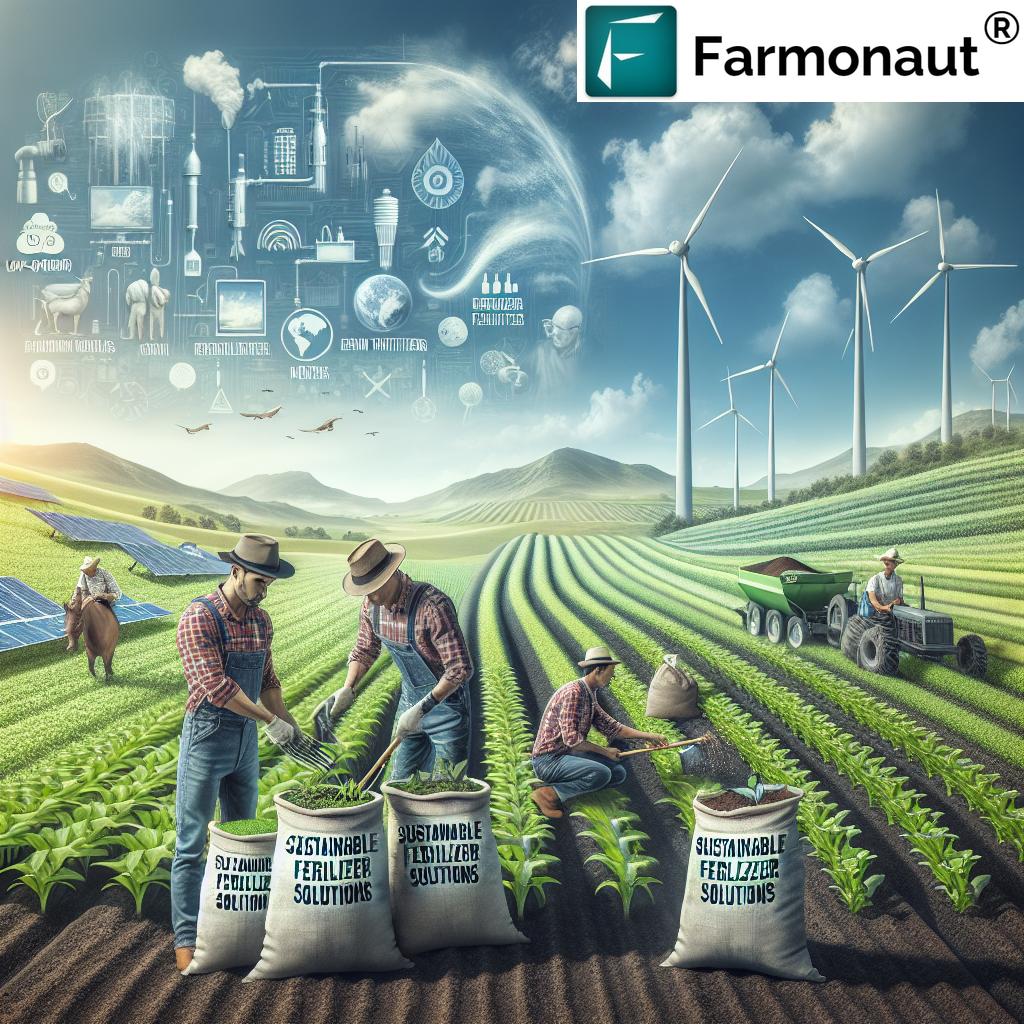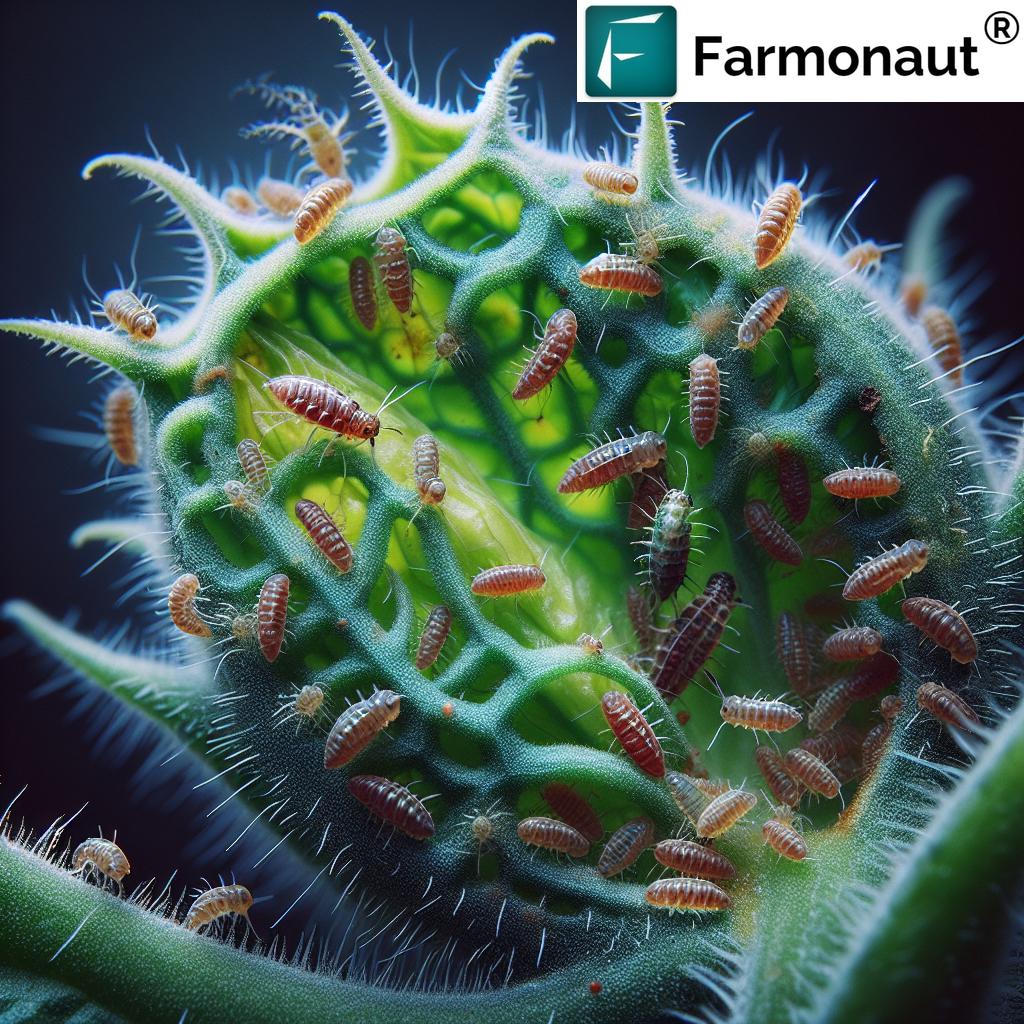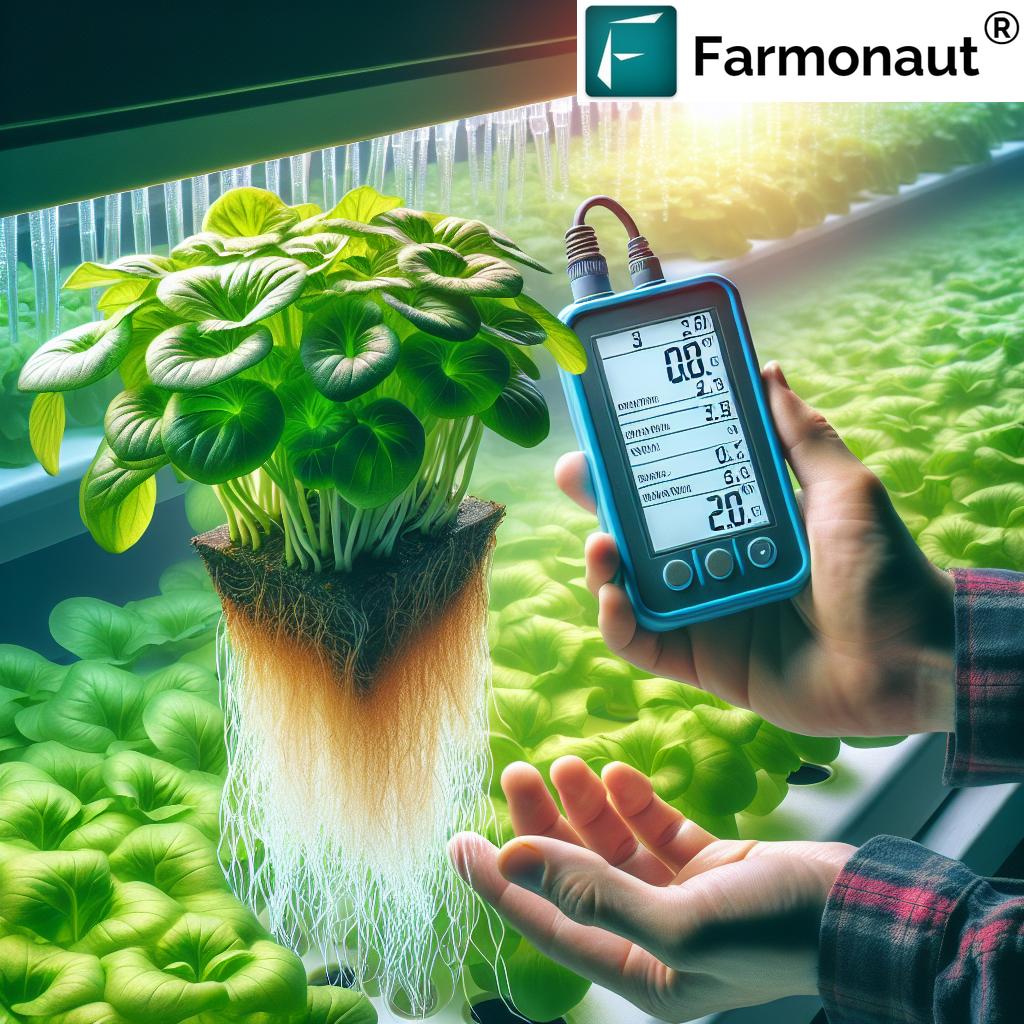Retail Development for Citrus-Growing Family Agriculture: Catalyzing Sustainable Growth in 2025
“Sustainable retail initiatives can increase citrus farm productivity by up to 25% while reducing environmental impact by 30%.”
“Globally, over 70% of citrus-growing families benefit from eco-friendly agriculture land development practices.”
- Introduction
- Understanding Retail Development in Citrus-Growing Contexts
- Agriculture Land Development & Agricultural Sustainable Development for Citrus-Growing Families
- Integration of Sustainable Practices in Citrus Farmland
- How Retail Development Drives Sustainability for Citrus-Growing Families
- Role of Digital and Physical Infrastructure in 2025 and Beyond
- Comparative Feature & Impact Table
- How We at Farmonaut Empower Citrus-Growing Family Agriculture
- Challenges and Future Prospects in Citrus-Focused Retail and Land Development
- Frequently Asked Questions
- Conclusion
Introduction: Transforming Agricultural Land Through Retail Development
In 2025, the intersection of retail development and sustainable agriculture land development has become critical for citrus-growing families. Facing evolving demands from modern supply chains, consumers, and environmental regulations, families are navigating a rapidly changing economy that rewards productivity, transparency, and stewardship. Gone are the days when simple farm stands sufficed. Today, sustainable growth for citrus growers hinges on integrating infrastructure enhancements, digital innovation, and eco-friendly practices alongside a savvy retail approach.
This comprehensive guide explores how the synergy between retail and agricultural sustainable development transforms citrus-farming—from the soil beneath the trees to the digital platforms connecting fresh fruit to local and global markets. We outline the best planning strategies, showcase innovations, and highlight actionable opportunities for citrus-growing families seeking to enhance productivity, resilience, and profitability, all while championing environmental health.
Let’s journey into the world where retail development shapes the future of citrus agriculture—and see how these strategies are making family-run farms thrive in climate-conscious, faster-paced, customer-oriented marketplaces.
Understanding Retail Development for Citrus-Growing Family Agriculture
What Is Retail Development in the Agricultural Context?
Retail development traditionally refers to the planning, establishment, and expansion of commercial outlets that sell goods directly to consumers. In citrus-growing regions, however, the term has transcended simple sales and now encompasses multi-channel, integrated strategies. The focus is not only on placing citrus fruits in local markets or grocery chains but also on transforming the farm itself into a dynamic retail destination and a node within modern supply chains.
- Farm-to-market integration: Modern retail development for citrus involves creating efficient connections from groves to markets, whether through local stands, packing houses, regional distribution facilities, or direct-to-consumer logistics.
- Digital and physical expansion: Marketplaces today extend to e-commerce sites, online subscription boxes, and mobile apps, in addition to traditional stores or on-farm sales points.
- Agri-tourism and experiential retail: Many citrus farms, especially those close to urban centers, establish visitor centers, host tours, and offer citrus-picking experiences.
All of these retail development strategies must align with sustainable principles if citrus-growing families are to compete on quality, traceability, and ecological integrity—key demands from modern consumers and supply chains in 2025.
How Has Retail Development Changed for Citrus-Growing Families?
Until recently, citrus farmers often depended on local cooperatives, wholesale buyers, or small neighborhood outlets. In contrast, today’s retail logistics are integrated with global supply chains, real-time digital marketplaces, and community-focused, experience-driven ventures. The driving factors include:
- Consumer demand for freshness, transparency, and sustainability
- Rapid adoption of digital technologies for marketing, sales, and logistics
- Emerging preferences for direct farm-to-table connections—both online and through agri-tourism
- Pressure for resilient and ethical agriculture land development that preserves soil, water, and biodiversity
These trends signal that the future of retail development for citrus-growing family agriculture will revolve around innovative business models, environment-friendly production, and robust infrastructure supporting high-value, fresh, and differentiated products.
Agriculture Land Development & Agricultural Sustainable Development for Citrus-Growing Families
The Foundation: What Does Sustainable Agriculture Land Development Mean?
At its core, sustainable agriculture land development for citrus focuses on optimizing farm layouts, practices, and infrastructure so that productivity is maximized while preserving—or even enhancing—natural resources. Unlike traditional methods that may have overlooked long-term ecological impact, sustainable models ensure:
- Healthy soils through crop rotation, cover crops, and organic fertilization
- Efficient water use via precision irrigation and rainwater harvesting
- Biodiversity maintained by planting complementary tree species, hedgerows, or groundcovers
- Resilience to climatic variability and pest outbreaks
Such agricultural development is aligned with retail needs, because markets and consumers increasingly seek sustainably produced citrus with transparent supply chains and verifiable eco-friendly credentials.
Environmental and Market-Driven Rationale
Shifts in climate, water scarcity, and land degradation have made sustainability critical for long-term survival. At the same time, markets incentivize environmental stewardship. Certifications like GlobalG.A.P. or Organic, and participation in “Carbon Neutral” or “Regenerative Citrus” programs, allow citrus-growing families to target premium buyers and socially conscious partners.
Integration of Sustainable Practices in Citrus Farmland
Sustainable Practices: Building Blocks for Prosperous Retail and Agriculture Land Development
To maximize productivity and environmental stewardship, citrus growers are increasingly adopting advanced techniques. Below are essential pillars of sustainable citrus-farming strategies as we move into 2025 and beyond.
-
Soil Health Management
- Extensive use of organic amendments, composting, and minimal tillage to preserve soil structure and support microbial biodiversity.
- Cover crops and crop rotation to reduce pests and feed the soil.
- Precision monitoring with remote sensing for tailored fertilization and irrigation—improving both yield and sustainability.
-
Water-Efficient Irrigation Systems
- Automation and drip irrigation minimize water use and improve efficiency.
- Rainwater harvesting and reservoir construction as buffers against drought.
-
Integrated Pest Management & Biological Controls
- Pheromone traps, beneficial insects, and disease-resistant citrus varieties instead of heavy chemical pesticide reliance.
- Organic approaches to controlling mealybugs, citrus greening, and other pests. Watch below to learn more:
-
Agroforestry and Complementary Species
- Planting nitrogen-fixing species, using windbreaks, or integrating pollinator habitats for improved resilience and yield.
How Retail Development Drives Sustainability for Citrus-Growing Families
The intersection of retail development and agricultural sustainability is a powerful engine for farm growth and resilience. Here’s how retail expansion fosters better sustainability in citrus agriculture:
- Access to premium and niche markets. Sustainable, traceable citrus fetches higher prices and unlocks entry to international supply chains and eco-branded outlets.
- Digitally empowered logistics and direct sales. Apps and online platforms reduce intermediaries and inefficiencies, helping farmers keep a greater share of the sale price while reducing food miles.
- Demand for transparency and certifications. Retailers and consumers increasingly require proof of origin, environmental impact, and fair labor practices, leading to better record-keeping and operational improvements on-farm.
- Agri-tourism and educational outreach. Experience-based retail (tours, tastings, “pick-your-own” citrus events) fosters local pride, creates new revenue streams, and builds community around sustainable practices.
Modern farm retail development empowers citrus-growing families to move beyond “commodity” sales, positioning their brands as trusted, sustainable, and community-oriented. As retail boundaries blur between online, on-farm, and in-store—family growers gain unprecedented power by integrating all three.
Role of Digital and Physical Infrastructure in Retail and Agriculture Land Development (2025 & Beyond)
Critical Infrastructure Investments for Citrus-Growing Families
A successful blend of retail and agriculture land development depends on smart infrastructure improvements. In 2025 and beyond, forward-thinking citrus growers are investing in:
- On-farm cold storage and packing houses to ensure fruit freshness, quality, and seamless logistics through retail supply chains.
- Visitor centers and event spaces to boost on-site sales, educate consumers, and attract tourists.
- Digital platforms—farm websites, producer-run e-commerce, and third-party traceability solutions —that guarantee product authenticity and connect directly with conscious consumers.
- Advanced monitoring tools (including remote sensing and mobile apps) to optimize water use, fertilizer application, pest control, and harvest timing, all contributing to sustainable agriculture land development.
It’s important to note that digital marketplaces, blockchain-based transparency, and integrated logistics are not just buzzwords—they’re now essential business tools for family farms seeking to thrive in evolved retail environments and build reputation as progressive, ethical suppliers.
Increasingly, citrus growers are turning to dedicated platforms and tools to streamline these processes. For example, blockchain-based product traceability solutions help verify origin, sustainability, and authenticity at every stage from grove to shelf—delivering trust, meeting regulatory requirements, and reducing fraud.
Farmonaut apps provide real-time satellite monitoring, crop health analytics, resource management, and much more—enabling citrus-growing families to make informed, data-driven decisions aligned with best retail and sustainability practices.
Comparative Feature & Impact Table: Sustainable Retail and Agriculture Practices for Citrus-Growing Families
| Development Practice | Estimated Productivity Increase (%) | Potential Environmental Benefit | Family Empowerment Index (1-10) |
|---|---|---|---|
| Local Retail Partnerships & Agri-tourism | 20-28% | Reduced food miles, stronger community ties | 9 |
| Drip Irrigation & Water-Efficient Systems | 12-22% | Reduced water consumption, better soil health | 8 |
| Integrated Pest Management (IPM) | 10-17% | Less chemical runoff, improved biodiversity | 7 |
| Blockchain Traceability | 8-15% | Supply chain transparency, higher market trust | 8 |
| Organic Fertilization & Cover Crops | 9-14% | Better soil fertility, erosion control | 8 |
| Farm Digitalization & Remote Sensing | 14-21% | Efficient resource use, minimized losses | 9 |
| Fleet and Resource Management Tools | 7-13% | Reduced fuel use, streamlined operations | 7 |
How We at Farmonaut Empower Citrus-Growing Family Agriculture
At Farmonaut, we are committed to supporting citrus-growing families in their journey towards sustainable retail development and agriculture land development. Our platform leverages advanced satellite imagery, AI-driven analytics, and blockchain solutions designed to help citrus growers:
- Monitor plantation health, soil quality, and water usage in real-time
- Access tailored advisory via the Jeevn AI system for weather, crop management, and resource application
- Track carbon footprinting data to support sustainability certifications and regulatory requirements
- Implement blockchain-based traceability tools for supply chain transparency, letting growers meet market demands for ethical and eco-friendly production
- Enhance operational efficiency and manage fleets with our fleet management solutions, reducing waste and optimizing productivity
- Streamline access to agricultural insurance and crop loan and insurance verification, lowering barriers to capital for smallholder citrus families
- Scale from individual farms to large, cooperative operations with our large scale farm management tools
- Benefit from advisory for plantation and forestry covering agrobiodiversity and climate-smart citrus production
Developers and enterprise users can also integrate advanced monitoring, traceability, and weather insights directly into their own farm management tools via our robust public API and explore detailed usage guidance through the API Developer Docs.
Challenges and Future Prospects in Citrus-Focused Retail Development and Agriculture Land Development
Common Obstacles Citrus-Growing Families Confront in 2025
- Upfront cost of infrastructure: Building new cold storage, digitizing records, or installing new irrigation systems can strain limited capital, especially for smallholders.
- Market access and regulatory compliance: Increased market requirements—such as traceability, certifications, and labor standards—require more complex record-keeping, new training, and sometimes costly audits.
- Technological adoption: Not all growers have access to high-speed internet, smartphone know-how, or the technical skills needed to optimize digital and remote monitoring systems.
- Balancing growth with conservation: Overexpansion or poorly planned farm development can lead to habitat loss, water over-use, or soil degradation—underlining the importance of wise, sustainably-aligned planning.
- Climate variability and environmental risks: Extreme weather, unpredictable rainfall, and evolving pest pressures require adaptability and real-time data-led management.
“Sustainable retail initiatives can increase citrus farm productivity by up to 25% while reducing environmental impact by 30%.”
Future Opportunities: Evolving with the Market and the Environment
Despite challenges, the future is bright for citrus families that embrace retail development in harmony with agricultural sustainable development:
- Innovations such as blockchain-enabled supply chains will elevate trust, access to international buyers, and efficiency—especially as global citrus buyers in 2025 and beyond enforce stricter traceability and sustainability benchmarks.
- Regenerative practices, supported by AI and satellite monitoring, will become the gold standard—enabling ongoing verification of carbon sequestration, soil improvement, and water savings. Explore how this works below:
- Digital direct-to-consumer platforms will empower families to bypass traditional middlemen, increasing their share of profits and building loyal, socially-minded customer bases.
- Mobile apps, accessible advisory, and affordable satellite insights will level the playing field for small citrus farms—driving resilience, productivity, and sustainable rural development worldwide.
Frequently Asked Questions (FAQs): Retail Development for Citrus-Growing Family Agriculture
-
What is retail development for citrus-growing families?
Retail development refers to the planning and expansion of commercial structures and platforms—both physical and digital—that enable direct and indirect sales from citrus farms to consumers. It includes local store partnerships, on-farm sales, digital marketplaces, and agri-tourism ventures, all designed to connect citrus growers with modern market demands.
-
How can agriculture land development be made sustainable?
Sustainable agriculture land development for citrus integrates efficient water management, soil health preservation, pest control through natural means, and biodiversity promotion by introducing complementary tree species and ground covers. These strategies ensure long-term productivity and environmental stewardship.
-
Why is transparency important in retail citrus supply chains?
Transparency enables growers to prove the origin, quality, and ecological credentials of their citrus fruit. Modern markets and consumers increasingly demand traceability for fair trade, environmental assurance, and food safety, making transparent supply chains essential for citrus-growing families aiming for premium or global markets.
-
What are the biggest challenges for citrus-growing families in retail development?
The biggest challenges include the high initial cost of infrastructure, regulatory complexity, technology adoption gaps, pressure to maintain sustainable practices, and climate-related uncertainties.
-
How does Farmonaut support citrus growers?
We at Farmonaut provide satellite-based crop health monitoring, real-time weather analytics, AI advisory, blockchain-enabled traceability, and digital resource management, equipping citrus-growing families with the insights and tools necessary for sustainable and profitable retail-aligned agriculture.
-
Are digital solutions cost-effective for small citrus farms?
Yes, when leveraging platforms like Farmonaut, even small-scale citrus growers gain access to affordable, subscription-based satellite data and advisory services, breaking down cost and expertise barriers that historically favored only large enterprises.
-
Can adopting sustainable retail and land practices increase profitability?
Absolutely. Sustainable retail and agriculture practices can increase productivity, qualify produce for higher-value markets, reduce input costs, improve risk management, and foster long-lasting, trusted customer relationships.
Conclusion: Navigating 2025—Retail Development and Sustainable Growth for Citrus-Growing Families
As we step deeper into the 21st century, the integrated approach of retail development and agricultural sustainable development stands at the heart of citrus-growing family empowerment. By combining thoughtful infrastructure planning, sustainable land stewardship, and digital innovation, families are not merely surviving—they’re thriving, leading their communities into a future where productivity and profitability coexist with profound respect for nature.
Whether through digitized logistics, transparent supply chains, or bold agri-tourism ventures, the opportunities for citrus-focused farmers are vast. Challenges remain, but with the right mix of knowledge, technology, and commitment, the intersection of retail and sustainability will define the next great leap in agricultural growth.
If you are a citrus-grower, now is the time to explore the tools and strategies that position your family, farm, and local community at the cutting edge of retail, sustainability, and environmental stewardship. Empower your growth—embrace the change!












